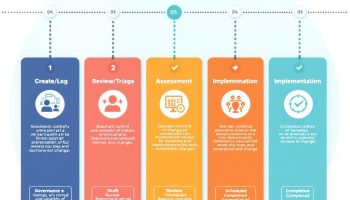
The Project Manager Role
The project manager job role has emerged as a critical leadership function driving organizational success across industries. As businesses increasingly recognize the strategic importance of effective project management, professionals in this role must tackle challenges while delivering measurable value through innovative approaches and comprehensive stakeholder engagement.
Key Takeaways:
- Project management is evolving from task completion to strategic value creation.
- The job role requires a blend of technical expertise and leadership capabilities.
- Successful project managers must balance multiple competencies, including communication, financial management, and risk assessment.
- Technology proficiency and adaptability are becoming increasingly crucial in the profession.
- The role demands continuous learning and alignment with broader organizational objectives.
Modern project management extends far beyond coordinating tasks and timelines. Today’s project managers serve as strategic partners who directly impact business outcomes. Your responsibilities will include translating organizational goals into actionable project plans while managing stakeholder expectations at every level.
The position demands exceptional communication skills. You’ll need to articulate complex concepts clearly, facilitate productive meetings, and create documentation that guides team members throughout the project lifecycle. Technical knowledge provides the foundation, but leadership abilities ultimately determine your effectiveness in motivating diverse teams toward common objectives.
Financial management represents another essential component of the role. Project managers track budgets, analyze cost variances, and make resource allocation decisions that protect profit margins. This financial stewardship requires analytical thinking and the ability to justify investment decisions to organizational leadership.
Risk assessment has become increasingly central to project management success. You must identify potential threats early, develop mitigation strategies, and adapt plans when unexpected challenges arise. This proactive approach minimizes disruptions and helps maintain project momentum even during difficult circumstances.
Technology continues to transform project management practices. From specialized management software to data analytics tools, technical proficiency gives you advantages in planning, execution, and reporting. Staying current with emerging technologies and implementation methodologies remains essential for career advancement in this dynamic field.
“Project management has evolved into a pivotal leadership role that not only drives organizational success, but also transforms complex challenges into strategic value. In a world where effective communication, technical expertise, and adaptability are essential, successful project managers are the architects of innovation and stakeholder engagement.”
Project Management Defined
Project management has evolved into a critical organizational function driving success across industries. As an emerging profession with significant global demand, the project manager job role continues to gain importance in today’s business landscape. Employment in this field is projected to grow by 7% from 2023 to 2033, with the global project portfolio management market valued at $6.13 billion in 2024.
The project manager job role encompasses overseeing initiatives from conception to completion while managing five essential elements: Money, Organization, Time, Information, and Quality (MOTIQ). You’ll need to balance strategic vision with tactical execution to deliver measurable value to your organization.
Essential Skills for Project Management Success
To excel in a project manager job role, you’ll need to develop several key competencies:
- Leadership abilities to guide teams through challenges
- Communication skills to engage with diverse stakeholders
- Critical thinking for effective problem-solving
- Financial management expertise for budget oversight
- Risk assessment capabilities to mitigate potential issues
- Technical proficiency with project management tools
The project manager job role requires you to navigate complex challenges daily. Over 85% of project managers handle multiple projects simultaneously, while nearly 10% of project dollars are at risk without proper management. Your ability to identify and manage stakeholders throughout the project lifecycle becomes crucial for success.
Modern project management extends beyond traditional task completion. You’ll serve as an innovation catalyst, integrating initiatives with strategic business objectives. This evolution requires continuous learning and adaptability, especially as project implementation approaches become increasingly technology-driven.
| Project Phase | Key Activities | Required Documentation |
|---|---|---|
| Initiation | Defining project scope and objectives | Project charter, stakeholder register |
| Planning | Developing detailed roadmaps | Project plan, risk register, budget |
| Execution | Implementing planned activities | Status reports, change requests |
| Monitoring | Tracking progress against baselines | Performance metrics, issue logs |
| Closure | Finalizing deliverables and review | Completion report, lessons learned |
As a project manager, you’ll need to master each phase while maintaining clear documentation and project communication throughout. Tools like Jira and Wrike can enhance your effectiveness in managing these lifecycle stages.
Organizations that invest in project management practices see on average a 20% increase in project success rates.
hbr.org
The Project Life Cycle: A Comprehensive Framework
Understanding the project life cycle forms the foundation of every project manager job role. This framework consists of five core stages that guide projects from conception to completion, each requiring specific approaches and documentation.
The project manager job role involves navigating these critical phases with strategic precision:
- Initiation: During this stage, you’ll define project goals, conduct feasibility studies, and secure stakeholder approval. Creating a comprehensive project charter establishes the foundation for success.
- Planning: Here, you’ll develop detailed project plans including schedules, budgets, resource allocation, and risk management strategies. Your project manager job role demands creating realistic timelines while avoiding common estimation pitfalls.
- Execution: This phase transforms plans into action. Your project manager job role includes coordinating team activities, managing resources, and ensuring deliverables meet quality standards.
- Monitoring & Controlling: You’ll track progress against baselines, identify variances, and implement corrective actions. Comparing plan vs. actual metrics helps maintain project health.
- Closure: This final stage involves delivering completed work, obtaining formal acceptance, conducting retrospectives, and archiving documentation for future reference.
Documentation and Tools for Effective Project Management
Each phase of the project life cycle requires specific documentation that supports your project manager job role:
| Phase | Key Documentation | Project Manager Job Role Focus |
|---|---|---|
| Initiation | Project Charter, Stakeholder Analysis | Defining scope and business case |
| Planning | Project Plan, Risk Register, Resource Schedule | Creating realistic timelines and budgets |
| Execution | Status Reports, Change Requests | Managing scope and leading team performance |
| Monitoring | Performance Metrics, Quality Assurance Reports | Tracking progress and implementing controls |
| Closure | Final Reports, Lessons Learned | Ensuring deliverables meet requirements |
Modern project management tools like Jira and Wrike enhance your effectiveness throughout the lifecycle. These platforms help you maintain documentation, track progress, and facilitate collaboration—key responsibilities in the project manager job role.
Successfully guiding projects through these phases requires identifying all project stakeholders and maintaining alignment at each stage. Your ability to adapt documentation and approaches based on project size and complexity demonstrates your value in the project manager job role.
Projects with clearly defined phases have a 25% higher likelihood of success than those with ambiguous guidelines.
hbr.org
Core Responsibilities and Strategic Leadership
As a project manager, your job role encompasses overseeing the entire project journey from conception to completion. You’re responsible for managing the critical MOTIQ elements: Money, Organization, Time, Information, and Quality. The project manager job role has evolved from simply completing tasks to becoming a strategic leadership position that drives organizational success.
You’ll spend considerable time facilitating communication among diverse stakeholders to ensure alignment with project goals. This includes identifying key project stakeholders and maintaining their engagement throughout the project lifecycle. As the project manager, you’ll lead and motivate cross-functional teams, typically consisting of 6-10 members with varying expertise and backgrounds.
One of your most critical responsibilities is ensuring projects deliver measurable organizational value. This requires a deep understanding of strategic project management principles and how your project aligns with broader business objectives.
Project Manager’s Core Function Areas
The project manager job role requires mastery across several key function areas:
- Resource allocation and optimization to maximize project efficiency
- Budget management and cost control to ensure financial viability
- Timeline development and schedule adherence to meet deadlines
- Risk identification and mitigation to protect project outcomes
- Quality assurance to meet or exceed stakeholder expectations
- Team leadership to foster collaboration and high performance
Successful project managers understand that effective project communication serves as the foundation for all other responsibilities. Your ability to communicate clearly with executives, team members, and stakeholders directly impacts project success.
The table below illustrates how the project manager job role has evolved over time:
| Traditional Project Manager Role | Modern Project Manager Job Role |
|---|---|
| Task executor and coordinator | Strategic business partner |
| Focus on deliverables | Focus on value creation |
| Process adherence | Innovation and adaptability |
| Technical expertise | Leadership and emotional intelligence |
| Single-methodology approach | Flexible methodology application |
Today’s project manager job role demands a blend of technical knowledge and leadership capability. You must balance analytical thinking with people management skills while maintaining a clear vision of the project’s strategic importance. Understanding project constraints and dependencies helps you navigate challenges effectively.
The project manager job role continues to gain importance as organizations recognize the value of structured project leadership. With employment growth projected at 7% from 2023 to 2033, developing your project management capabilities represents a sound career investment.
Organizations with high project management maturity are 60% more likely to achieve their strategic goals.
forbes.com
Key Skills for Modern Project Managers
Project manager job role success depends on a unique blend of technical expertise and soft skills. You need diverse capabilities to navigate today’s complex business environments effectively. In fact, strong communication, leadership, and technical abilities are non-negotiable for project managers who want to excel.
Essential Competencies for Project Success
Leadership and communication form the backbone of the project manager job role. You’ll need to clearly articulate goals, expectations, and feedback while inspiring your team to perform at their best. The ability to practice active listening distinguishes exceptional project managers from average ones.
Critical thinking and problem-solving are crucial when facing unexpected challenges. As a project manager, you’ll constantly assess situations, evaluate alternatives, and implement solutions that keep projects on track. These skills help you overcome project roadblocks efficiently.
Financial management capabilities ensure you deliver within budget constraints. This includes:
- Creating realistic cost estimates
- Tracking expenditures against forecasts
- Managing contingency reserves
- Reporting financial performance to stakeholders
- Implementing corrective actions for budget variances
Risk assessment requires both analytical thinking and foresight. Effective project managers identify potential risks, develop mitigation strategies, and implement effective risk response planning to minimize impacts.
Technology proficiency is increasingly important in the project manager job role. You must stay current with project management software, collaboration tools, and industry-specific technologies. This adaptability allows you to leverage new solutions that enhance team productivity.
| Skill Category | Specific Competencies | Impact on Project Manager Job Role |
|---|---|---|
| Leadership | Team motivation, conflict resolution, delegation | Drives team performance and collaboration |
| Communication | Stakeholder management, reporting, active listening | Ensures alignment and transparency |
| Technical | Planning, budgeting, risk management | Enables efficient project execution |
| Strategic | Business acumen, organizational awareness | Aligns projects with business objectives |
| Adaptability | Change management, continuous learning | Helps navigate uncertainty and complexity |
To excel in the project manager job role, you should focus on developing both technical and interpersonal skills. This balanced approach enables you to become a successful project manager who delivers consistent results. Your ability to combine methodical planning with flexible leadership will determine your effectiveness in this dynamic role.

Challenges and Performance Metrics
Today’s project manager job role faces unprecedented challenges in an increasingly complex business landscape. You’ll likely manage multiple projects simultaneously – a reality for over 85% of project managers who juggle competing priorities and resources across various initiatives. This multitasking requirement demands exceptional organizational abilities and strategic prioritization skills.
Financial accountability represents another significant challenge. With nearly 10% of project dollars at risk, you must demonstrate strong budget management capabilities to prevent cost overruns. Implementing effective risk response planning becomes essential to safeguard project investments and maintain financial integrity.
The project manager job role requires balancing technical expertise with interpersonal skills. While understanding methodologies and tools is crucial, your ability to lead teams, manage conflicts, and communicate effectively often determines project success. This dual requirement creates tension for many project managers who excel in one area but struggle in the other.
Evolving Success Metrics
Traditional project manager job role performance metrics focused primarily on the iron triangle – delivering on time, within budget, and according to scope. However, modern project evaluation has expanded beyond these constraints to include:
- Business value generation metrics that demonstrate ROI
- Customer satisfaction measurements tracking end-user experience
- Team development indicators showing how project work enhances capabilities
- Knowledge transfer assessments revealing organizational learning
- Sustainability metrics evaluating long-term impact
Adopting a strategic project management approach helps you navigate these challenges by connecting project outcomes to organizational objectives. You’ll need to establish clear success criteria that reflect both immediate deliverables and long-term business impact.
The following table summarizes key performance metrics for the project manager job role:
| Metric Type | Example Measurements | Strategic Value |
|---|---|---|
| Efficiency | Schedule variance, budget adherence, resource utilization | Operational excellence |
| Quality | Defect rates, requirements met, testing results | Product integrity |
| Business Impact | Revenue generated, cost savings, market share | Organizational growth |
| Stakeholder | Client satisfaction, team engagement, sponsor approval | Relationship strength |
| Innovation | Process improvements, knowledge created, capabilities developed | Competitive advantage |
Your ability to track and report on these diverse metrics will increasingly define your effectiveness in the project manager job role. By implementing comprehensive project success criteria, you’ll demonstrate the full value your projects deliver beyond traditional constraints.
Future of Project Management: Strategic Value Creation
The project manager job role has transformed from simply completing tasks to becoming a strategic value driver within organizations. You’ll now find project managers actively contributing to business innovation and strategic decision-making rather than just delivering predefined outcomes. This shift reflects how the project manager job role continues to evolve in response to market demands.
Modern project managers create value by aligning projects with core business objectives. Your ability to implement strategic project management practices will directly impact organizational success. Project manager job role expectations now include demonstrating how each initiative contributes to company growth and competitive advantage.
Technology integration has revolutionized the project manager job role. You’ll need proficiency with AI-powered tools, predictive analytics, and automation platforms that streamline workflows and provide deeper project insights. The project manager job role increasingly requires data-driven decision-making to optimize resource allocation and enhance outcomes.
Key Value Creation Approaches for Project Managers
Your project manager job role must focus on these value-creation strategies:
- Implement business case validation at each project phase to ensure continued alignment with strategic goals
- Develop measurable success metrics beyond the traditional time/budget constraints
- Adopt agile methodologies to increase adaptability to changing market conditions
- Foster cross-functional collaboration to break down organizational silos
- Utilize performance dashboards and scorecards to demonstrate project value
The most successful project managers excel at stakeholder management. You’ll need to effectively identify and engage with project stakeholders at all levels to ensure buy-in and support throughout the project lifecycle. The project manager job role demands creating clear communication channels that keep everyone informed and aligned.
Continuous professional development has become essential in the project manager job role. You must stay current with emerging methodologies, technology trends, and industry best practices. The project manager job role requires lifelong learning through certifications, advanced degrees, and practical experience to maintain relevance in this rapidly evolving field.
Organizations now expect their project manager job role to contribute to innovation initiatives. Your ability to foster creative problem-solving and introduce new approaches can significantly impact organizational competitiveness. The project manager job role increasingly involves balancing efficiency with innovation to deliver maximum value.






